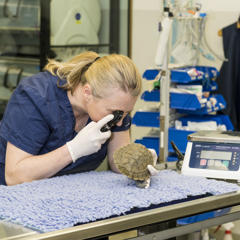Wildlife health and veterinary outreach
Responding to the needs of wildlife and delivering exceptional, evidence-based care.
Found an animal that needs help now?
In recent years, Zoos Victoria has seen an increase in the number of wildlife cases that are presenting to our hospitals. In 2020, our three zoos saw more than 3000 cases of sick and injured wild animals. Threats to wildlife health and welfare include predation, collision with vehicles, urbanisation and habitat destruction and an increase in extreme whether events and bushfire due to a changing climate.
The scale of the need across Victoria is beyond the capacity of Zoos Victoria’s existing facilities and expertise. It is clear that there is a need to enhance veterinary capacity and capability across the state to respond to wildlife in need. It will require a co-ordinated, collaborative and evidence-based approach that expands beyond metro Victoria and reaches throughout regional Victoria.
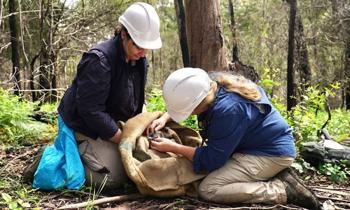
Building veterinary capacity
Zoos Victoria’s Wildlife Outreach program is in the early stages of establishing a state-wide network of general practice veterinary professionals. Through structured workshops and ongoing guidance, the program aims to increase capacity and skill in clinical assessment and care of native wildlife and emergency response preparedness. This program is currently funded through the Victorian State Government.
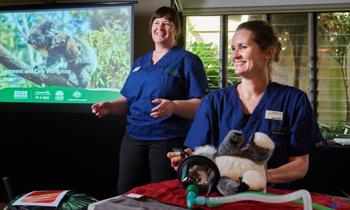
Veterinary professional development
Zoos Victoria is proudly the Victorian program partner of Wildlife Treatment and Care. The course improves the knowledge and skills of veterinary staff related to wildlife triage, first aid, treatment and care. Learn more here or watch our video.
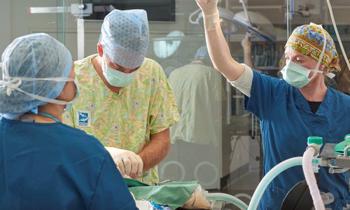
Providing care through our zoos
Zoos Victoria is home to three dedicated wildlife hospitals, including the Australian Wildlife Health Centre at Healesville Sanctuary and the RSPCA Koala Ward at Werribee Open Range Zoo. As the largest employer of wildlife-focussed veterinary, husbandry and research professionals in the State, our three zoos provide support for wildlife wherever possible including assistance to injured or distressed marine wildlife through Melbourne Zoo’s Marine Response Unit.
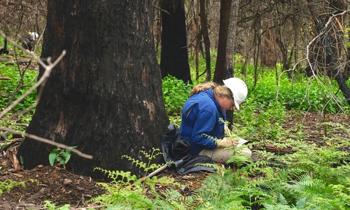
Wildlife health and research
Zoos Victoria’s Wildlife Health and Welfare Advisor is funded by RSPCA Victoria. The role oversees proactive projects that aim to improve outcomes for wildlife rehabilitation and threatened species conservation programs by expanding knowledge and in the field of wildlife health.
H5 Avian Influenza Preparedness
Avian Influenza H5N1 could arrive in Victoria this spring.
It is important that anyone who encounters sick or dead wild birds and wildlife is aware of H5N1, to minimise any risks to themselves and other animals. The most important sign to be aware of is sudden death.
Other signs of sickness are:
• lack of coordination, tremors, swimming in circles
• twisted necks or other unusual posture
• inability to stand or fly
• diarrhoea
• difficulty breathing, coughing or sneezing
• swelling around the head, neck and eyes
• cloudiness or change in colour of the eyes.
Other signs of sickness are:
What to do:
- AVOID contact with sick or dead wild birds or wildlife and their environment. Do not touch or collect sick or dead wild birds or wildlife.
- RECORD what you see. If safe, record information on the number of dead birds/animals, species, location, date and time.
- REPORT by calling DEECA on 136 186.
• Report clusters (5 or more) of sick or dead wild birds of any species, anywhere in Victoria.
• Report even one
• sick or dead penguin or pelican
• sick or dead bird of prey (e.g. hawks, owls, eagles)
• sick or dead black swan
• sick or dead marine mammal (e.g. seals, sea lions, dolphins).
Read more at wildlife.vic.gov.au
Are you part of an organisation that encounters wildlife? Visit LEAP
